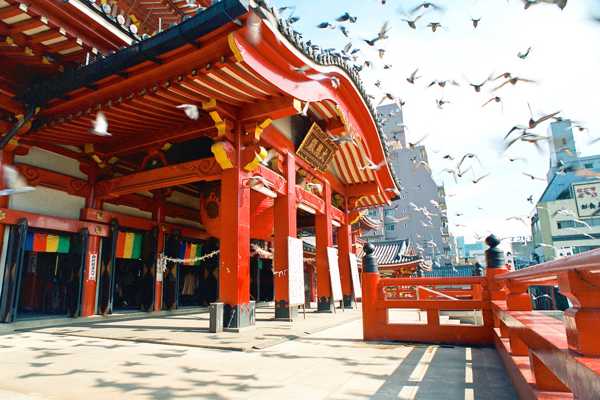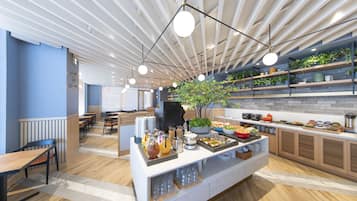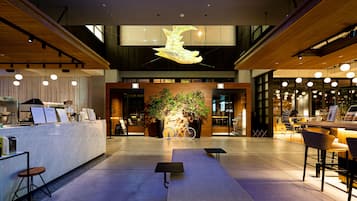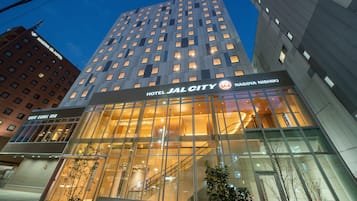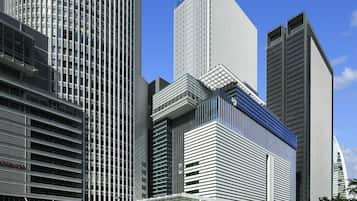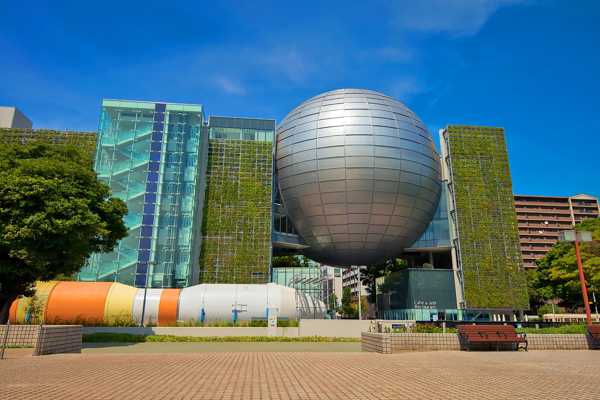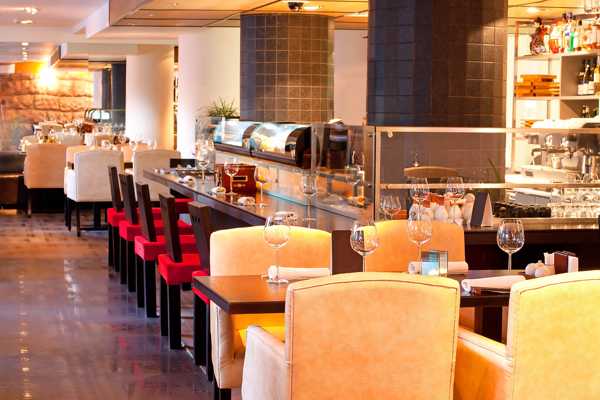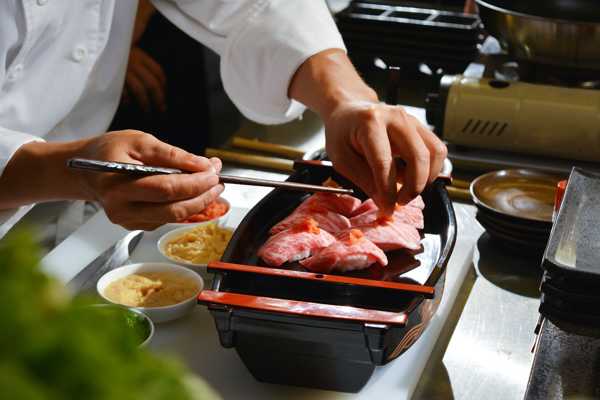Nagoya is renowned for its unique food culture, which is mostly based on dark-brown miso paste (akamiso) made with bean malts (mamekoji), such as dark miso (haccho miso). The local cuisine, known as Nagoya-meshi, is so popular that people visit from far and wide just to enjoy this dish. The area’s rich cuisine using akamiso such as miso cutlet (miso-katsu), udon in miso broth (miso-nikomi udon) and cows’ or pigs’ offal (tonchan) is an excellent accompaniment for rice and beer.
Don’t forget to try the grilled eel on rice (hitsumabushi), a hearty dish so popular it has spread from the Nagoya region to the rest of Japan. Let’s take a look at the rich variety of Nagoya’s best local dishes.
- 1
Pork cutlet with soybean paste sauce (miso katsu)
A rich and flavourful dish for cosy family dinners

- Familles
- Gastronomie
Pork cutlet with soybean paste sauce (miso katsu) is a typical example of Nagoyan cuisine. It’s a freshly fried pork cutlet with a sweet-and-salty dipping sauce made with red soybean paste such as haccho miso, bonito stock and sugar.
It’s said that immediately after the war, a local dipped a deep-fried skewer (kushi katsu) into a tripe hotpot with red soybean paste (dote nabe), and it turned out so delicious that it became a staple dish. Different restaurants have their own takes on miso katsu, using a variety of types of pork cutlet with soybean paste sauce, such as set meals, on top of rice in a bowl, as a deep-fried skewer, or on a griddle (teppan-yaki).
CartePhoto prise par bryan... (CC BY-SA 2.0) modifiée
- 2
Hitsumabushi
One of the best local foods in Nagoya

- Couples
- Familles
- Gastronomie
Hitsumabushi is finely chopped grilled eel with a soy sauce-based glaze served on top of rice in a wooden tub. It’s enjoyed in 3 distinct steps. First, take 1 serving to a small bowl and enjoy as it is, before taking another serving and mixing in condiments such as green onion, wasabi and nori. Lastly, take another serving, pour in soup or green tea to enjoy it as ochazuke.
While hitsumabushi is commonly found throughout Japan (mainly in the Tokai region), Atsuta Houraiken, a long-established restaurant located in front of Atsuta Jingu Shrine, has acquired the trademark. Hitsumabushi is one of the best local foods in Nagoya, so you’ll find plenty of restaurants serving this hearty rice dish.
CartePhoto prise par Nullumayulife (CC BY 2.0) modifiée
- 3
Miso nikomi udon
A rich and warming noodle soup

- Budget
- Couples
- Gastronomie
Miso nikomi udon consists of udon noodles simmered in rich soup made with haccho miso (soybean paste) and bonito stock. What’s special about this dish is that the firm, fresh noodles, which are made only with flour and water, are immediately simmered in the soup without being pre-boiled. Popular toppings include eggs, chicken, Japanese leek, fish cake (kamaboko) and deep-fried tofu (abura-age).
The people of Nagoya enjoy boiling hot udon in clay pots, not only in winter, but also in the heat of summer, even if it makes them sweat. The soup, with its soybean paste and bonito stock flavours, also goes very well with white rice.
CartePhoto prise par bryan... (CC BY-SA 2.0) modifiée
- 4
Kishimen
Light flat noodle dish with lots of flavour

- Gastronomie
- Voyages uniques
Kishimen is loved by the people of Nagoya, so much so that it’s sold on Nagoya Station’s bullet train platforms. These flat noodles are typically served in a soup stock of bonito or horse mackerel. A type of soy sauce called tamari is usually used for seasoning, and the clear soup is flavourful yet light. The dish is typically topped with boiled spinach, deep-fried tofu (abura-age), fish cake (kamaboko) and green onion, with a garnish with dried bonito.
Some restaurants also offer toppings such as mixed vegetable tempura (kakiage), shrimp tempura and chicken. You can customise your kishimen as you like, and it can be enjoyed both hot or cold. You can even buy a dried version as a souvenir.
CartePhoto prise par Kos88 (CC BY-SA 4.0) modifiée
- 5
Tenmusu
Rice balls wrapped in seaweed

- Budget
- Gastronomie
- Magasinage
Tenmusu is a rice ball filled with a flavoured small shrimp tempura wrapped with crispy nori seaweed. While it’s a common Nagoya snack, it was originally served as a meal for employees of a tempura restaurant in Tsu, a city in Mie Prefecture. When a former employee opened a restaurant in Nagoya, the dish became so popular that it’s now one of Nagoya’s signature foods.
Tenmusu is delicious even when it’s cooled down, so you can easily enjoy it while sightseeing in Nagoya. You can find it in department stores, stations and markets throughout the city.
CartePhoto prise par m-louis .® (CC BY-SA 2.0) modifiée
- 6
Taiwan ramen
A spicy Nagoya staple

- Budget
- Gastronomie
- Groupes
Taiwan ramen contains a soy sauce-flavoured chicken stock soup that’s topped with Chinese chives and ground pork fried, with spicy red pepper seasonings. Despite its name, the dish is actually an authentic Nagoyan dish. Taiwan ramen started when a Taiwanese restaurant in Nagoya took inspiration from a Chinese noodle dish and added plenty of garlic and spicy red peppers.
Taiwan ramen is very popular with the locals, who tend to prefer simple yet strong flavours. Don’t worry if you’re a big fan of spicy foods. Restaurants let you adjust the spiciness according to your taste.
Carte - 7
Jambo ebi furai
Deep-fried shrimp everyone loves in Nagoya

- Gastronomie
- Groupes
- Célibataires
The city’s most loved shrimp dish is, of course, deep-fried shrimp (ebi furai). There are many local specialities containing shrimp in Nagoya, such as shrimp rice crackers (ebisen) and tempura shrimp rice balls (tenmusu). You can find fried shrimp at many restaurants and traditional bars (izakaya) in Nagoya.
Esca, located in Nagoya Station Underground Shopping Street, is famous for serving Japan’s biggest jumbo fried shrimp (jambo ebi furai), around 35 cm in length. This would surely be a highlight of your trip to Nagoya.
Carte - 8
Ton-chan
To be shared with friends over a barbecue

- Budget
- Gastronomie
- Groupes
Nagoya’s offal dishes typically use pork tripe seasoned with red soybean paste. Ton-chan consists of fresh tripe marinated in a soybean paste-based sauce and cooked on a small charcoal grill. This rich, flavourful and healthy dish is full of vitamins and collagen.
A walk through the old town area within the Osu Shopping District or the downtown district of Sakae will inevitably lead you to restaurants that serve ton-chan. Or get your friends together, fire up the barbecue and cook some ton-chan to share with your mates.
CartePhoto prise par Tokyo-to (CC BY-SA 3.0) modifiée
- 9
Tebasaki
Nagoya-style chicken wings

- Gastronomie
- Groupes
Fried chicken wings should be your first choice for night-time snack in Nagoya, and the Nagoya-style chicken wings (tebasaki) are salty-sweet, spicy and pair very well with beer. You can find restaurants serving this snack throughout Japan, especially in Tokyo, but you must try the authentic taste in Nagoya.
These wings are fried without batter, resulting in a light taste. The meat becomes plump and juicy by double-frying. There are 2 famous restaurant chains in Nagoya, both of which have loyal fans, so you can have fun trying both places and decide which is best.
CartePhoto prise par kimishowota (CC BY-SA 2.0) modifiée
- 10
Ankake spaghetti
A hearty noodle dish

- Budget
- Gastronomie
Ankake spaghetti doesn’t actually contain spaghetti, but extra-thick noodles which are boiled in advance. It’s then mixed in a spicy sauce made with meat and vegetables. The sauce is also thickened with potato starch, which helps to ensure the noodles are well coated. The dish is called ankake spaghetti because the thickened sauce is called ‘an’ in Japanese.
Toppings include sausages, bacon, onions and green pepper, with lots of black pepper for good measure. This hearty dish will fill you up on its own, which explains why it’s a popular lunch option for office workers.
Carte



